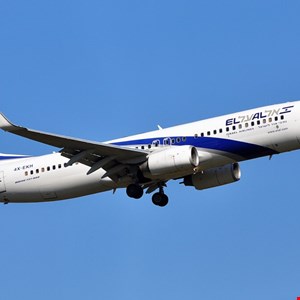- Beyerdynamic's DT 990 Pro headphones get a refresh, promising portability without compromise
- How AI is helping PwC clients comply with European Union sustainability regulations
- The pressure is on for quick AI rollouts - but slow and steady wins this race too
- Forget Otter.ai: ChatGPT just entered the meeting room
- Seven Steps to Building a Mature Vulnerability Management Program
Israeli Aircraft Survive “Cyber-Hijacking” Attempts

Two flights bound for Israel over the past week have suffered attempts to hijack their communications and divert the aircraft, according to local reports.
The El Al flights were both travelling from Thailand to Israel’s Ben Gurion international airport and apparently encountered “hostile elements” while flying over the Middle East.
Citing a report from national broadcaster Kan Reshet B, The Jerusalem Post claimed that hackers attempted to hijack the planes’ communications networks in order to divert them from their pre-programmed route.
No group has claimed responsibility. Although the aircraft were flying over an area in which Iranian-backed Houthis are active, sources have claimed it could be the work of a group operating from Somaliland – an unrecognized state in the Horn of Africa.
Read more on in-flight hacking: FBI Claims Hacker Made Plane Fly Sideways
Fortunately, the pilots reportedly became suspicious about the sudden change in instructions and ignored them, switching to another communications channel and double-checking their route with air traffic controllers.
An El Al source revealed that pilots are trained to spot and mitigate such threats whilst in the air.
“The disturbances are not aimed at El Al planes and this is not a security incident,” a statement from the airline noted.
“The disruption did not affect the normal course of the flight thanks to the professionalism of the pilots who used the alternative means of communication and allowed the flight to continue on the planned route.”
The EU’s aviation safety agency EASA recently revamped its cybersecurity regulations for the sector with the release of the first Easy Access Rules (EAR) for Information Security (Part IS).
They’re designed to enforce best practice security across the industry, covering an exhaustive range of suppliers as well as airlines, airports, communication infrastructure providers and air towers.
Image credit: Vytautas Kielaitis / Shutterstock.com

